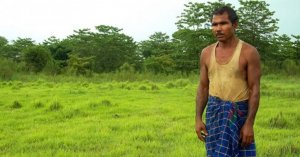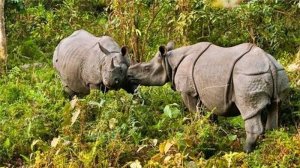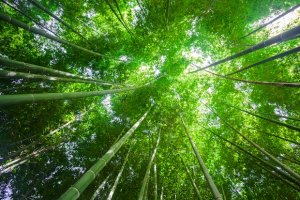Located in Jorhat district of Assam Molai forest is a man-made forest. Single-handedly grown and groomed by Jadav “Molai” Payeng situated on Majuli island in Bharamputra river near Kokilamukh this is world’s largest one-man-made forest. Jadav Payeng, also known as “The Forest Man of India”, spent 35 years of his life planting trees to save this island, creating a forest and restoring wildlife in it.
In 1979 when Jadav was 16 he came across a bed of dead snakes on the sun-baked shores of the Brahmaputra river. Due to lack of shade from trees, these snakes roasted and perished in sunlight. After seeing this, he started by planted bamboo trees on a sandbar along the river bank. As the bamboo grew he planted several other trees too.

He started working on the forest when the local forest division launched a scheme of tree plantation on 200 hectares as a forest worker. The project was completed in 5 years. He continued planting trees on his own even after other workers left. He looked after those plants and continued to plant more trees, and transformed the area into a forest.
Jadav Payeng was awarded Padma Shri for single-handedly planting and growing this forest. He has done a phenomenal work of planting in 550 hectares of land within a time period of 35 years. He started with a very small step of planting trees on the bank of the River Brahmaputra which later on turned into a huge forest area giving a home to several wildlife creatures.
Molai’s reforestation efforts have effectively fought the problems of erosion along the Brahmaputra river. The forest trees improved soil quality and stability, preventing erosion to a large degree. Approximately 300 of the 550 hectares in the Molai forest is made up of bamboo, which is particularly effective at stabilizing river banks. In addition, bamboo absorbs more carbon and releases more oxygen than other trees. It has vastly improved the air quality in the area.
Apart from huge bamboo coverage, there are several thousands of trees, including gold mahur, valcol, arjun, Pride of India, royal poinciana, silk trees, moj, koroi, himolu and cotton trees, among others.

Along with a wide range of vegetation, Molai forest is also home to huge wildlife. The Molai forest now houses Bengal tigers, Indian rhinoceros, reptiles, deers, apes, wild boars, monkeys and rabbits. It is home to over 50 different species of birds which consists of a large number of vultures. A herd of 115 elephants regularly visits the forest and stays for 5-6 months.
The fact that animals are making their home in the Molai forest is a sure sign of the healthy and sustainable ecosystem that Payeng has built. Earth is suffering from environmental crises and climate change and Payeng suggests we should provide education about planting trees to children from elementary school and do this in a practical way.



